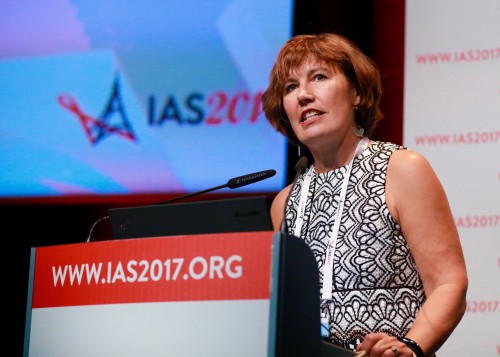The most important sexual health clinic providing services to men who have sex with men (MSM) in London saw a drop in gonorrhea diagnoses of 24 percent in 2016 compared with the prior year, aidsmap reports. This occurred as use of Truvada (tenofovir disoproxil fumarate/emtricitabine) as pre-exposure prophylaxis (PrEP) rose dramatically among the clinic’s clients and HIV diagnoses dropped considerably.
Additionally, the 56 Dean Street clinic, located in the heart of London’s gay mecca, the Soho neighborhood, has recently instituted a series of new procedures and policies to facilitate sexually transmitted infection (STI) and HIV testing among local MSM. For example, the clinic offers quick and easy self-testing for STIs in which individuals can walk into the clinic, enter information into a computer via a touchscreen and immediately proceed to a lavatory to conduct their own swabs for testing. The testing is conducted on site, and results are available via text message within 90 minutes. A team is responsible for then ensuring that those who test positive for STIs return promptly for treatment.

The 56 Dean Street clinic in LondonBenjamin Ryan
As England awaits the official availability of PrEP through its National Health Service, which is slated for September, numerous MSM have purchased Truvada online through the website IWantPrEPNow.co.uk and are accessing the necessary monitoring, including STI and HIV testing, through Dean Street in particular.
In January, news broke that HIV diagnoses declined 42 percent at the clinic between 2015 and 2016. This impressive drop is likely driven in part by PrEP use and also by aggressive efforts on the part of the clinic to get more MSM living with HIV onto treatment and to reduce the time between diagnosis and treatment, thus harnessing the power of antiretrovirals (ARVs) to prevent transmission of the virus.
Sheena McCormack, MSc, FRCP, a professor of clinical epidemiology at University College London and the chief investigator of the British PROUD study of PrEP among MSM, presented the new STI diagnosis data at the 9th International AIDS Society Conference on HIV Science in Paris (IAS 2017).

Sheena McCormack of University College London (UCL) at IAS 2017Benjamin Ryan
In the third quarter of 2015, the Dean Street clinic diagnosed about 1,600 cases of gonorrhea, a figure that dropped to about 1,000 per quarter during 2016.
According to McCormack, the reason for the drop in gonorrhea diagnoses remains unclear. It is possible that increased rates of HIV and STI testing are helping to diagnose and treat gonorrhea and prevent its transmission among local sexual networks.
Meanwhile, the clinic has not seen a similar decline in chlamydia cases. McCormack theorized that this difference could be a function of the fact that chlamydia’s incubation period is longer than gonorrhea’s, so tests might be missing cases.
To read the aidsmap article, click here.
To download the conference presentation slides, click here.







Comments
Comments